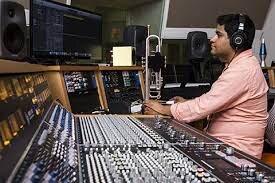Is music engineering a good career?
Music engineering, also known as audio engineering, is a specialized field that involves the technical and creative aspects of recording, mixing, and producing music. With the growing popularity of music, there is an increasing demand for skilled audio engineers who can produce high-quality music recordings. But is music engineering a good career? In this article, we will explore the various aspects of a music engineering career and discuss the potential benefits and drawbacks.
Overview of Music Engineering Career
A music engineer works with recording artists and music producers to record, mix, and produce music. They are responsible for setting up the recording equipment, adjusting the sound levels, and ensuring that the final product meets the required quality standards. Music engineers work in various settings, including recording studios, radio and television stations, and live music venues.
Music engineers need to have an in-depth understanding of audio technology and music theory. They also need to be creative, detail-oriented, and able to work under pressure. Most music engineers have a degree or diploma in music production, audio engineering, or a related field.
Benefits of a Music Engineering Career
- Creative Satisfaction: Music engineering offers a unique opportunity to be creative and contribute to the artistic expression of musicians. Audio engineers get to work with some of the best musicians in the industry, creating something truly special.
- High Demand: With the growing popularity of music, there is an increasing demand for skilled music engineers. The music industry is constantly evolving, and there are many opportunities for growth and advancement in this field.
- Job Flexibility: Music engineers can work in various settings, including recording studios, live music venues, and film and television productions. This offers a great deal of job flexibility and the opportunity to work on a diverse range of projects.
- Potential for High Income: Experienced music engineers can earn a high income, especially if they work with successful musicians or produce hit records.
Drawbacks of a Music Engineering Career
- Competitive Industry: The music industry is highly competitive, and there are many talented music engineers vying for a limited number of jobs. It can be challenging to break into the industry, especially without prior experience or connections.
- Long Hours: Music engineering often requires working long hours, including evenings and weekends. This can be challenging for those who prefer a more regular work schedule.
- High-Stress Environment: The pressure to produce high-quality recordings can be stressful, especially when working with demanding artists or producers.
- Technological Advances: The music industry is constantly evolving, and music engineers need to stay up-to-date with the latest audio technology and software. This requires ongoing training and investment in new equipment, which can be expensive.
Conclusion
Music engineering can be a rewarding and lucrative career for those with a passion for music and audio technology. However, it is a highly competitive industry that requires hard work, dedication, and ongoing training. Music engineers need to be creative, detail-oriented, and able to work under pressure to produce high-quality recordings that meet the demands of the music industry.
Overall,
If you have a passion for music and audio technology, and are willing to put in the time and effort required, music engineering can be a good career choice. It offers the opportunity to work with talented musicians, be creative, and potentially earn a high income. However, it is important to be aware of the potential drawbacks, including the competitive industry, long hours, and high-stress environment.




